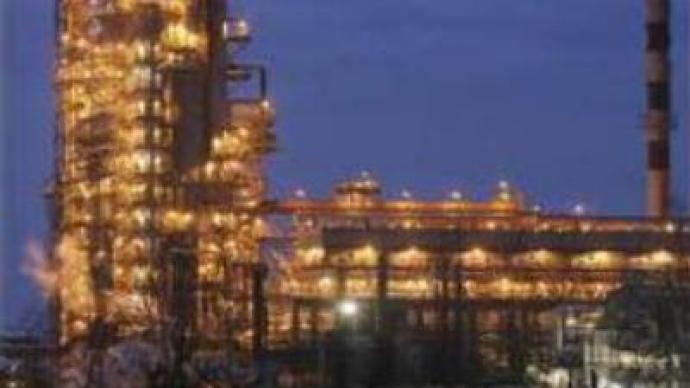Oil industry investing in refineries

With high prices for crude and oil products, producers are no longer interested in simply exporting oil. The refining and oil product business is becoming increasingly attractive to investors.
Over the last decade Russia's refinery industry has faced many problems. The main reason why it still operates reasonably successful is low domestic prices for oil.Traditionally, Soviet refineries had very significant capacity, because they were built to supply the whole country, not to mention the exports. In the 90's the demand for oil products fell and as a result the refineries were running below capacity.Another problem during this period was that the refineries were often underfinanced and lacked modern technology. The out-of-date technology negatively influences the quality of Russian oil products, especially motor fuels. This production does not correspond to European standards, but is still attractive to domestic buyers.“The modernization process is going quite slow, though considerable progress was made over the last couple of years, especially after the export duties for oil products were cut compared to export duties for crude. At the same time oil prices and therefore prices for oil products sky-rocketed. This is when the investments started to flow in,” said Yakov Ruderman, the Head of PetroMarket Research Group.For financial reasons Russian oil companies usually prefer to modernize old refineries which have all the needed infrastructure instead of building new ones. Still, a number of new projects are being considered, such as building a refinery at the end of the East-Siberia – Pacific Ocean pipeline and another one not far from Saint-Petersburg in the Gulf of Finland. The idea is to build new oil refineries close to the Russian borders and next to seaports and oil terminals to minimize the costs of oil supply.Most of the major oil companies in Russia have a balanced upstream and downstream structure. Rosneft was producing significantly more oil than it could refine. But with the acquisition of Yukos downstream assets, it now also has a more balanced system.Some skeptics say that domestic oil products will lose a significant market share to better quality foreign products once Russia gets accepted to the WTO. But many analysts believe that's not the case.“Even now there are no barriers for foreign products to be sold in Russia. There is no import tax, but still, Russian producers control the market. And even if the demand for foreign high-quality products will grow, the Russian oil industry is very strong and will react immediately,” added Yakov Ruderman.With the investments in the refinery business up 30% the future for the industry looks bright.
You can share this story on social media:












